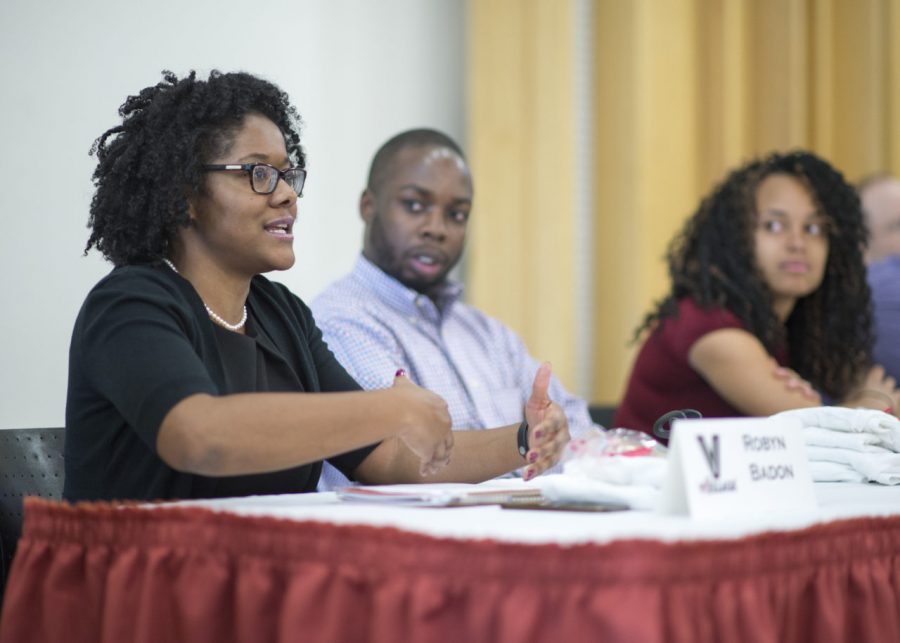The V(i)llage and the University of Utah’s STEM outreach program are working together to inspire African American students to pursue a future career in the fields of science and technology.
Students from surrounding high schools and participants in the V(i)llage visited campus on the Feb. 8 to learn about unique programs that the U offers in science, medicine and engineering. Students were given a tour of campus by faculty and learned about what it’s like to go to college. Some professors gave interactive presentations including Dr. Anthony Butterfield who had a canon that shot smoke rings.
In 2011, only 6 percent of STEM workers were black, which is just over half of the 11 percent of African-Americans in the workforce. Of all recipients of STEM bachelor degrees in 2013, only 7.6 percent were black while only 4.5 percent of STEM doctorate degree recipients were black. The V(i)llage teamed up with STEM U because they want students of color to begin to realize their potential in STEM fields.
The V(i)llage was established in 2013 by Dr. Bryan K. Hotchkins and Nedra L. Hotchkins, who envision a “global society where young people authentically express themselves while accessing a quality education that is culture-centered, digitally relevant and leadership-based.”
Studies conducted in rural and suburban areas have shown that youth of color experience identity-based exclusion, which can lead to depression and lower academic performance because of feelings of exclusion and a decreased sense of belongingness.
The V(i)llage takes a unique perspective in their attempts to educate youth and help them to foster the attributes of a leader. Participants are encouraged to live by the motto, “Think Positionality,” which challenges students to consider their position in everyday circumstances.
With a heightened awareness of position, students of color will clearly know and recognize racial injustice and other forms of discrimination when they witness it in their own lives others’. The V(i)llage aims to inspire both youth and adults to raise their voice when they see instances of injustice while urging them to act as future leaders and to provide society with solutions.
The V(i)llage now operates in 14 schools in Utah, with post-program research finding that “The V(i)llage participants experience a positive holistic impact.”


